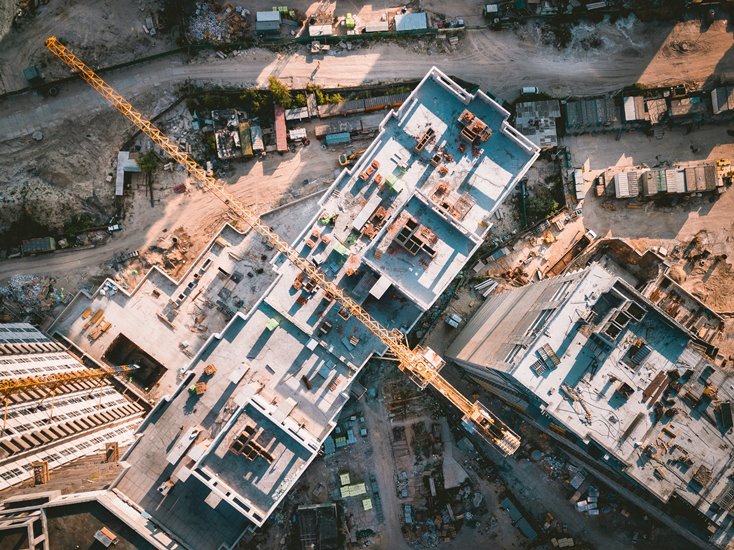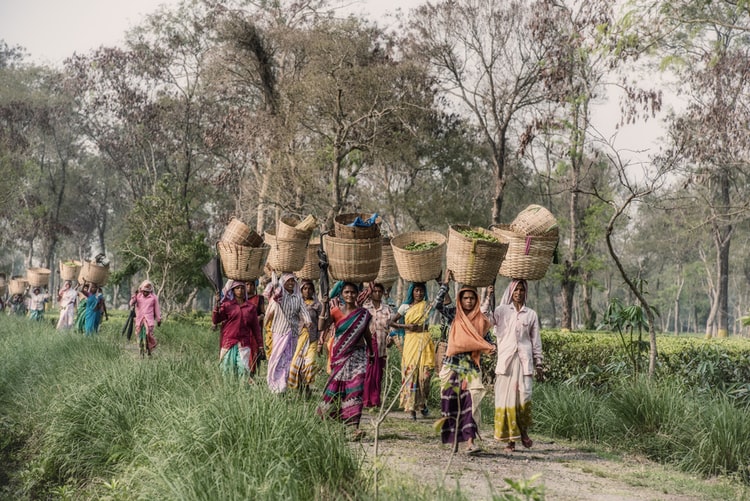The global garment workforce is facing extreme hardship in the COVID-19 pandemic. The precipitous drop in demand triggered by shop closures threatens the wellbeing of millions in the industry, most of whom are women.
Our recent research focused on the garment industry in Lesotho, which is home to factories that manufacture clothes primarily for the US and South African markets. These factories are vital to the Lesotho economy: the garment sector accounts for more than 90% of formal manufacturing jobs, employs about 40,000 workers (80 per cent of them women), and contributes 20% of Lesotho’s GDP.
COVID-19 is intensifying challenges to worker protection
The global pandemic is exacerbating longstanding problems for worker protection in the garment sector, including in Lesotho.
Concerns about health and safety, for example, appear in a new form: ensuring workers’ safe return to work. Poor enforcement will hinder these efforts. Our report from late last year on southern Africa – Developmental Enforcement – highlighted the constraints on labour standards enforcement in Lesotho: an under-resourced labour inspectorate and deficient coordination among government agencies, foreign investors, and buyers.
Work/family worries have also intensified in the pandemic. In our short film on the Lesotho garment factories – Rethabile’s Story – it is striking how often workers highlight work-family as a key challenge. They miss children who live in distant villages with their grandparents, or struggle to fit childcare into long working days framed by lengthy commutes. In the pandemic, these concerns have evolved into fears about how children will be fed and clothed. Loss of wages is not the only devastation. Workers have lost the supports provided by (the better) factories: childcare, meals, healthcare. These troubles are magnified in countries in which social protection systems are underdeveloped and there is scant government assistance for furloughed workers.
Worker voice in the pandemic
How can we protect garment workers? Many of the solutions proposed in the pre-COVID-19 era remain relevant. Our report, for example, recommended strengthened public enforcement, enhanced co-ordination, and capacity-building on labour standards compliance.
Under COVID-19, global cooperation is ever more vital. A robust role for the brands is inescapable. Sustainable social protection systems are equally crucial.
Yet, vital to efforts to protect garment sector workers – we have suggested from the experience in Lesotho – is listening to workers themselves.
Research has shown that worker-management committees at the factory level improve communication and relations, breaking down barriers to non-compliance. Accompanied by training and remediation, workers report acquiring skills that help them in their home lives as well, in particular with regard to health and safety, sharing responsibilities, and communication around budgeting and conflict resolution. The Lesotho unions have also forged key relationships (and established enforceable agreements) with global buyers and NGOs towards the elimination of gender-based violence in the garment sector.
In the pandemic, worker voice should remain at the heart of policy responses. Trade unions also play an important role. The unions in Lesotho recently mobilised to hold the government accountable for unpaid wages that had been promised to workers, and for proper health and safety procedures in the factories.
Voice mechanisms, further, must be particularly sensitive to women’s experience and needs. As one of us has argued elsewhere, the COVID-19 response in the garment sector cannot be gender-neutral.
Lessons from the international level
Recent international initiatives are promising. The International Labour Organization (ILO) – the UN’s labour agency – has issued COVID-19: Action in the Global Garment Industry. Aiming to prompt action to support manufacturers and preserve workers’ incomes, health, and employment, the Call to Action sets out priorities and commitments that are endorsed by its signatories.
The Call to Action identifies vital policies. Governments and financial institutions are called on to ensure financial support for the industry, income support for workers, job preservation, and sustainable social protection. Crucially, brands and retailers must commit to limit COVID-19’s effects on their supply chains, including by paying manufacturers for finished or in-production goods.
Of course, much depends on execution. Yet it is notable that the Call for Action emerged from a wide-ranging dialogue encompassing brands, manufacturers, employers’ organisations – and also trade unions.
If the Call is not as effective in embedding gender in the COVID-19 response, other international efforts are more robust. Work/family is prominent in the efforts of Better Work – a partnership between the ILO and the International Finance Corporation. In Haiti, for example, Better Work has partnered with UNICEF to promote women’s access to health care and is working with the Labour Ministry to include pregnant and nursing women in the government’s stimulus package.
As these international efforts highlight, the most sophisticated responses to COVID-19 support worker voice. The wellbeing of the women who make our clothes – in Lesotho and across the world – depends upon their voices being heard.
Note: This article gives the views of the authors, and not the position of the Social Policy Blog, nor of the London School of Economics.
Decent Work Regulation in Africa is an international collaboration between Durham University, UK, the University of Cape Town, South Africa, York University, Canada and local and international stakeholders. It is part of a broader investigation into globally-shared challenges to effective labour regulation funded by the UK Global Challenges Research Fund and Economic and Social Research Council. A recent study on Developmental Enforcement (2019) explores the effective enforcement of labour standards in South Africa and Lesotho. The project’s short film Rethabile’s Story has been screened internationally (trailer below). The project can be followed on Twitter at @UnacceptableFoW.






1 Comments